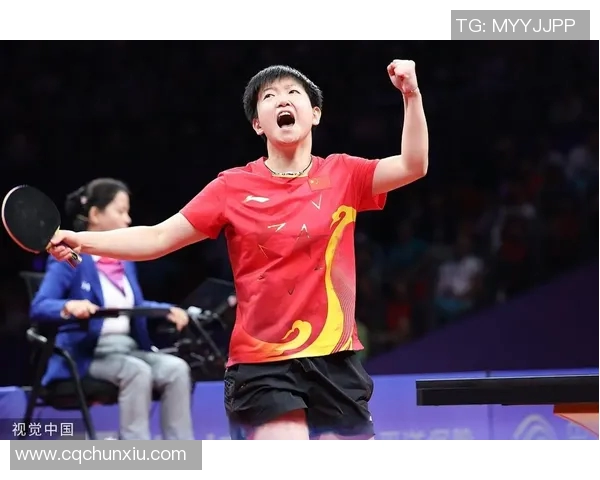本文旨在深入分析南京乒乓球队在总决赛中的节奏掌控与表现,探讨其成功的关键因素。首先,我们将从战术安排、运动员心理素质、比赛策略及团队协作四个方面进行详细阐述。通过对这些方面的分析,可以更好地理解南京乒乓球队在高压环境下如何有效控制比赛节奏,并最终取得优异成绩。此外,文章还将结合实际比赛情况,提供具体案例,以增强论证的说服力和实用性。通过对各个细节的剖析,我们希望能够为其他团队提供借鉴,同时也为乒乓球爱好者呈现一幅精彩的竞技图景。
在总决赛中,南京乒乓球队凭借科学合理的战术安排展现了出色的竞技状态。教练组根据对手特点和自身实力制定了一套完整的战术体系。这包括了发球策略、接发球方式以及击球线路等多方面内容,使得每位队员都能充分发挥个人特长。同时,这种针对性的战术安排使得队伍能够快速适应比赛变化,保持竞技状态。
具体而言,在不同阶段的比赛中,南京队会根据局势变化灵活调整战术。例如,在面对强敌时,他们可能采取更加稳健的防守策略,通过拉锯战消耗对手体力,而在优势局面下则会加大进攻力度,尽快结束比赛。这种灵活应变能力正是他们能够持续占据主动权的重要原因之一。
此外,每场比赛前,教练组都会组织专门会议,对即将面对的对手进行详细分析。通过视频回放和数据统计,他们可以识别出对方选手的弱点,从而设计针对性的击打方案。这种严谨而系统化的方法不仅提高了球队整体水平,也增强了运动员们对胜利的信心。
运动员心理素质是影响赛事表现的重要因素。在总决赛这样高压环境下,南京队员展现出了极强的心理韧性。他们能够在关键分数时刻保持冷静,不被外界环境所干扰,这对于最终胜利至关重要。良好的心理素质使他们在面对失误或落后局面时不会急于求成,而是坚持自己的打法。
为了提高运动员的心理抗压能力,南京队还邀请专业心理辅导师进行指导,通过模拟训练和心理疏导帮助队员们适应高强度竞争带来的压力。这些措施有效提升了队员们在关键时刻做出正确判断和反应的能力,从而确保了他们能够稳定发挥水平。
与此同时,在团队氛围上,南京队注重培养积极向上的团队文化,相互之间鼓励支持,让每位成员都能感受到来自集体的力量。当其中一名选手遭遇困难时,其余成员会及时给予情感支持,这种团结一致精神进一步提升了整个团队抗压能力,为胜利奠定基础。
除了战术安排外,本次总决赛中南京乒乓球队还展现出了卓越的比赛策略及其执行力。在比赛过程中,他们明确各自角色定位,根据场上形势实时调整打法,以达到最佳效果。例如,在单打环节中,他们会充分利用每位选手独特技术特点,将其融入整体战略当中,从而形成合力。
Nanjing team’s players have shown a strong sense of timing and rhythm in the execution of their strategies. They can quickly grasp the pace of the game, using tactical pau米兰milan官方网站ses to disrupt opponents' rhythm while maintaining their own momentum. This ability to control the tempo effectively puts them in a favorable position throughout the match.

此外,为了让每个选手都能熟悉并执行既定战略,教练组还进行了大量的小组演练。在模拟训练中,各个选手必须不断磨合,提高彼此间配合默契度,从而确保正式赛事中的顺畅连接。这种扎实细致的准备工作显著提升了他们在实际竞赛中的表现效果。
Nanjing team’s success also stems from its emphasis on teamwork and collaboration. Throughout the finals, each player demonstrated a deep understanding of their roles within the team, which allowed for seamless coordination during matches. The synergy between teammates enabled them to create scoring opportunities collaboratively while minimizing errors.
The training sessions included various team-building activities designed to enhance communication among players. Such exercises fostered trust and camaraderie, making it easier for athletes to predict each other's movements during matches. This intuitive understanding was particularly evident during crucial moments when quick decision-making was essential.
Additonally, post-match feedback sessions were held regularly to analyze performance as a unit rather than focusing solely on individual achievements. This approach promoted collective improvement and ensured that all members were aligned with the team's objectives, further solidifying their bond and enhancing overall performance.
总结:
Nanjing table tennis team's success in the finals can be attributed to meticulous planning across various facets including tactical arrangements, psychological preparation, strategic execution, and teamwork. By addressing each aspect comprehensively, they created an environment where athletes could thrive under pressure and perform at their best.
This analysis not only highlights specific strategies employed by Nanjing's team but also serves as a guide for other teams aiming to enhance their competitive edge. Ultimately, understanding how these elements intertwine can lead to improved performance outcomes in high-stakes situations like championships.
以便获取最新的优惠活动以及最新资讯!